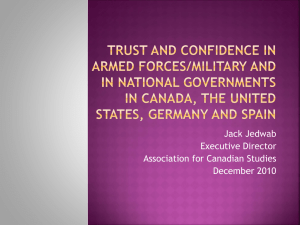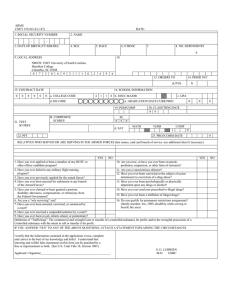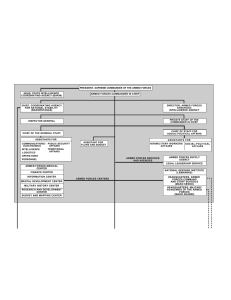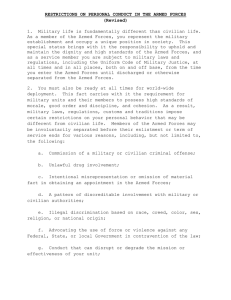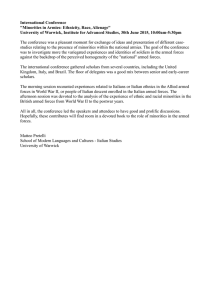ON ADDITIONAL GUARANTEES AND COMPENSATIONS TO MILITARY
advertisement
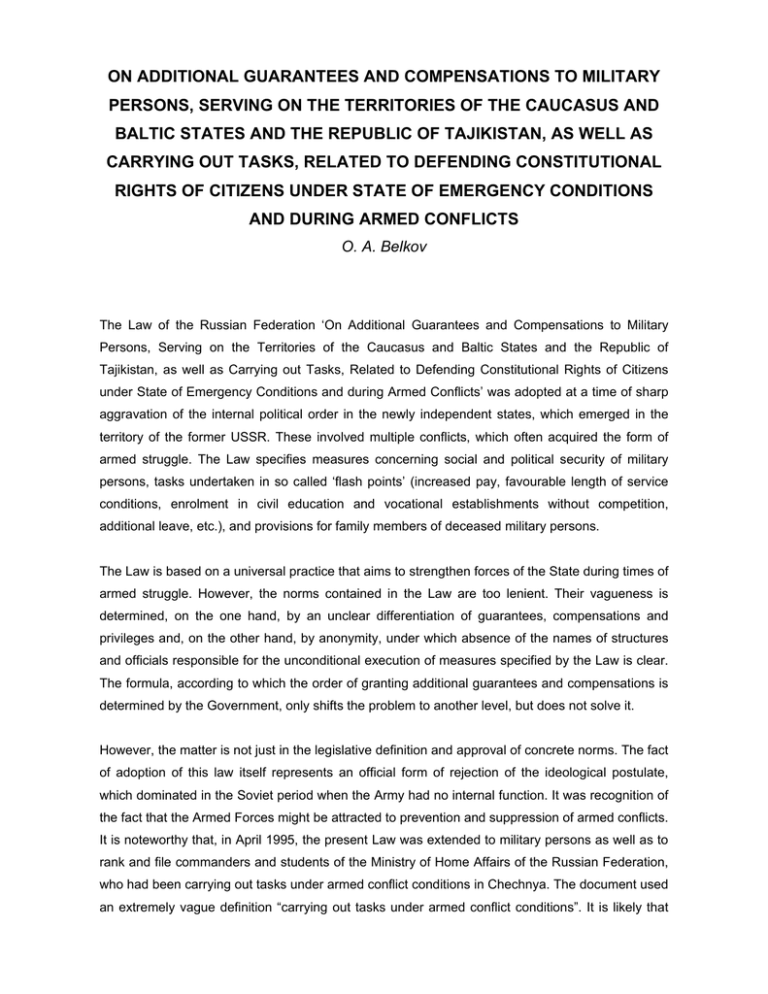
ON ADDITIONAL GUARANTEES AND COMPENSATIONS TO MILITARY PERSONS, SERVING ON THE TERRITORIES OF THE CAUCASUS AND BALTIC STATES AND THE REPUBLIC OF TAJIKISTAN, AS WELL AS CARRYING OUT TASKS, RELATED TO DEFENDING CONSTITUTIONAL RIGHTS OF CITIZENS UNDER STATE OF EMERGENCY CONDITIONS AND DURING ARMED CONFLICTS O. A. Belkov The Law of the Russian Federation ‘On Additional Guarantees and Compensations to Military Persons, Serving on the Territories of the Caucasus and Baltic States and the Republic of Tajikistan, as well as Carrying out Tasks, Related to Defending Constitutional Rights of Citizens under State of Emergency Conditions and during Armed Conflicts’ was adopted at a time of sharp aggravation of the internal political order in the newly independent states, which emerged in the territory of the former USSR. These involved multiple conflicts, which often acquired the form of armed struggle. The Law specifies measures concerning social and political security of military persons, tasks undertaken in so called ‘flash points’ (increased pay, favourable length of service conditions, enrolment in civil education and vocational establishments without competition, additional leave, etc.), and provisions for family members of deceased military persons. The Law is based on a universal practice that aims to strengthen forces of the State during times of armed struggle. However, the norms contained in the Law are too lenient. Their vagueness is determined, on the one hand, by an unclear differentiation of guarantees, compensations and privileges and, on the other hand, by anonymity, under which absence of the names of structures and officials responsible for the unconditional execution of measures specified by the Law is clear. The formula, according to which the order of granting additional guarantees and compensations is determined by the Government, only shifts the problem to another level, but does not solve it. However, the matter is not just in the legislative definition and approval of concrete norms. The fact of adoption of this law itself represents an official form of rejection of the ideological postulate, which dominated in the Soviet period when the Army had no internal function. It was recognition of the fact that the Armed Forces might be attracted to prevention and suppression of armed conflicts. It is noteworthy that, in April 1995, the present Law was extended to military persons as well as to rank and file commanders and students of the Ministry of Home Affairs of the Russian Federation, who had been carrying out tasks under armed conflict conditions in Chechnya. The document used an extremely vague definition “carrying out tasks under armed conflict conditions”. It is likely that the lawmaker proceeded from the assumption that clear definitions of functions and tasks of the Armed Forces of the State, specified by ‘The Code of Conduct, Related to Military and Political Aspects of Security’, is implicit in other legal acts. The maximum terms for the carrying out of tasks in a state of emergency and during armed conflicts by military persons is the responsibility of the Government of the Russian Federation. The determination of zones of armed conflicts, in each particular case, is also within its authority. These conditions have not an instrumental, but a conceptual character. They draw a clear line, dividing the competence of political and military authority in estimating and qualifying armed conflict, outlining limits of independent actions of military command in considering organizational and staff matters and, consequently, representing one of the key factors of civil control over military activity.
